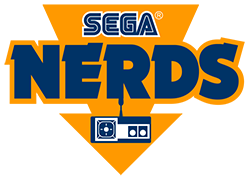
Polygon has published a new interview with Yu Suzuki, from their 18-part look inside Japan’s game industry simply titled, Life in Japan. The interview takes place at a kitchen table, in a small Tokyo apartment Suzuki uses as an office. Leone describes the work space, noticing “a mug with a character from his game Shenmue on it, a Hello Kitty-themed Dreamcast console and a tile Ys Net sign sitting on a desk built into the wall.” Can I get that mug, please?
Suzuki is currently in what he describes as a “creation phase”. During this creation phase, Suzuki spends his time thinking of concepts for new games as well as building a portfolio so he could pitch his ideas to potential publishers. Leone further states that “For the past six years, he’s been running a game concept incubation and production company, mostly working on small mobile games while drumming up ideas for more ambitious projects.” Suzuki hopes that he will get another chance at creating a big-budget console game. When Matt tried to ask Yu about the work he has done in the past six years, Suzuki would deflect the questions, preferring to talk about his development prime in the 80s and 90s. Suzuki pretty much lived at SEGA during those years, sleeping on a flattened cardboard box on the office floor.
The hours between 2:00 and 4:00 a.m. became his favorite time of day. Suzuki used the time to “escape from the distractions of managing a team and work for himself. ‘During those two hours, I got the equivalent of a normal person’s two weeks of work done,’ ” Suzuki explains. Suzuki would keep a recorder, pen, and paper in case he came with an idea through his dreams. The camera mechanics in Virtua Cop, for example, was the result from such a dream. Of course, what kind of interview would it be without mentioning Suzuki’s most fabled title, Shenmue?
SEGA considered the title a “company project”, so Suzuki pretty much had a blank check to make the game he wanted, in the hopes the end results would bring in Dreamcast sales. At that time, SEGA was struggling, so Shenmue did not garner in enough money to justify making a Shenmue 3. Since that time, he has struggled to get bigger games off the ground. “I used to spend more time pitching my ideas to people, but it’s not that fun of a job to do,” Suzuki says. When Leone asked if Shenmue losing money hurt his chances to create another game of that scale, Suzuki “acknowledges that Sega took a loss on the game but says the company ‘easily recouped’ Shenmue‘s development budget with profits from Virtua Fighter 3 and 4.”
The interview further discusses all of Suzuki’s potential projects and plans for the future. You can read the full interview here. What are your thoughts on what Yu Suzuki said in the interview? Leave your comments below!







